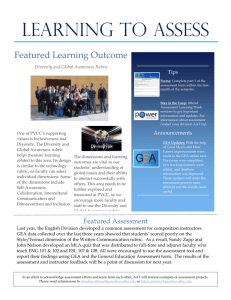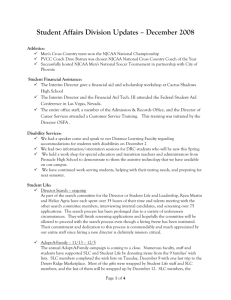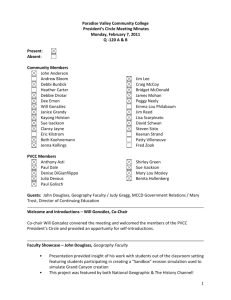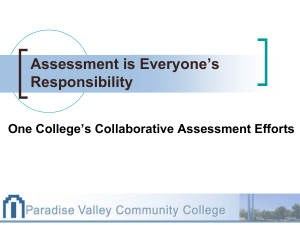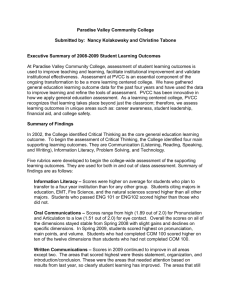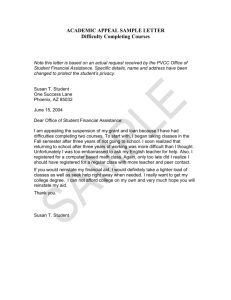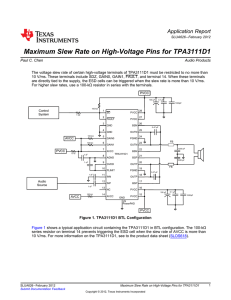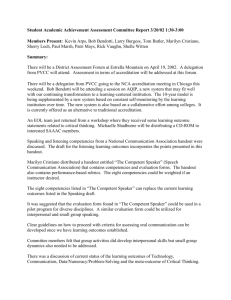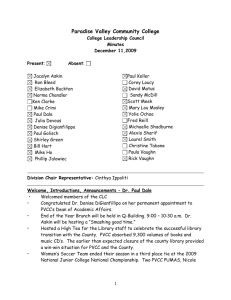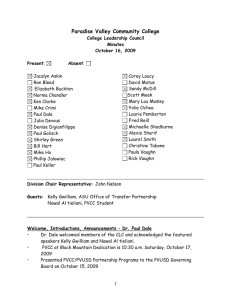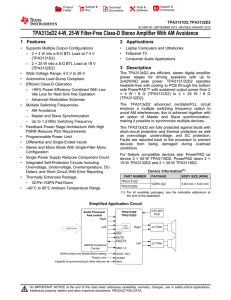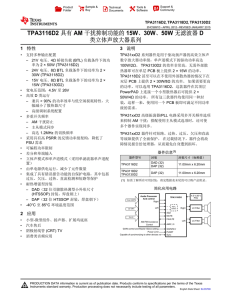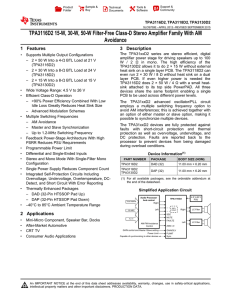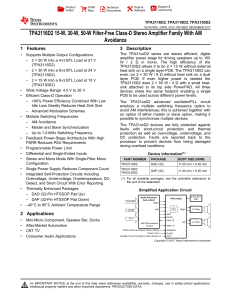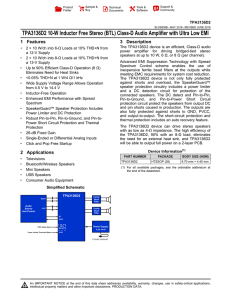Fall 2011 Learning Week Presentation
advertisement
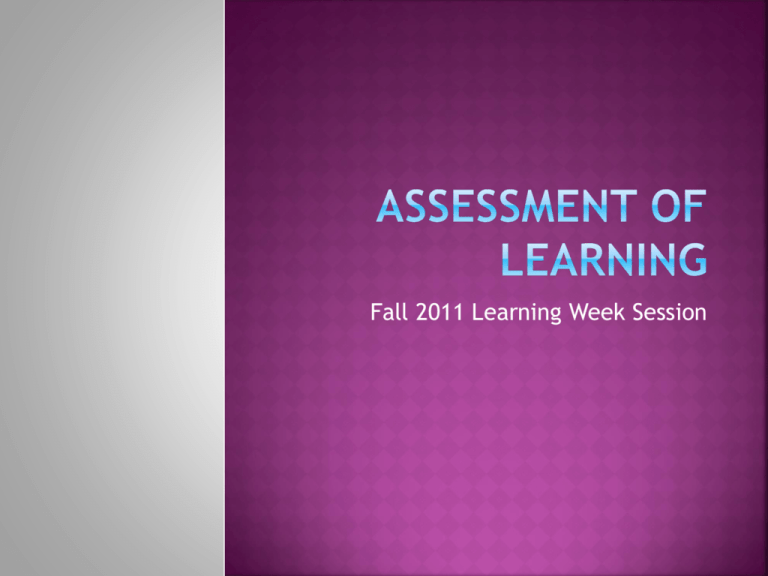
Fall 2011 Learning Week Session I. Welcome II. Assessment of Learning Website III. GEA Results IV. CAT Results V. Assessment Activities VI. Questions http://www.pvc.maricopa.edu/AL Revised Future Assessment Report form Revisions Total Remodel Underway Featured Assessment Projects Please let us explain . . . Year 2006-2007 Number of Sections Assessed 308 2007-2008 256 2008-2009 157 2009-2010 148 2010-2011 257 Purpose Assess PVCC’s core learning outcome: critical thinking Supplement PVCC rubrics with a nationally normed assessment of critical thinking Rationale – Aligned with PVCC’s core learning outcome NSF Supported and Funded http://www.tntech.edu/cat/home Critical Thinking at PVCC Critical Thinking is exhibited by the ability to: respond to material by distinguishing between facts and opinions, judgments and inferences, inductive and deductive arguments, and the objective and subjective; generate questions, construct and recognize the structure of arguments, and adequately support arguments; define, analyze, and devise solutions for problems and issues; collect, organize, classify, correlate, analyze and present materials and data; integrate information and identify relationships; and evaluate information, materials, and numerical and/or graphical data by drawing inferences, arriving at reasonable and informed conclusions, applying understanding and knowledge to new and different problems, developing rational and reasonable interpretations, suspending beliefs and remaining open to new information, methods, cultural systems, values and beliefs and by assimilating information. Skill Areas Assessed by the CAT Evaluating Information and Other Points of View Separating factual information from inferences. Interpreting numerical relationships in graphs. Understanding the limitations of correlation data. Evaluating evidence and identifying inappropriate conclusions. Creative Thinking Identifying alternative interpretations for data or observations. Identifying new information that might support or contradict a hypothesis. Explaining how new information can change a problem. Learning & Problem Solving Separating relevant from irrelevant information. Integrating information to solve problems. Learning and applying new information. Using mathematical skills to solve realworld problems. Communication Communicating ideas effectively. Comparison to National Norms Pre/Post-test Pre-test: Students with no General Education courses at PVCC; Cohort: All CPD150 Students Post-test: Students with 8 or more PVCC General Education courses; Cohort: Students selected from upper level General Education classes in Physics, Calculus, Communications, & English Future Longitudinal Study Critical Think Tank/CAT Scorers Doug Berry Marianne Botos Tom Butler Julie Carpenter Marilyn Cristiano Casey Durandet Jim Forsman Mike Hamm Felicia Ramirez Elaine Weintraub For additional CAT info: http://www.tntech.edu/cat Assessment Project Report Forms Write and report Critical Thinking Critical thinkers think about thinking critically! Say that 10 times out loud! Mapping of Critical Thinking Abilities Questions?
